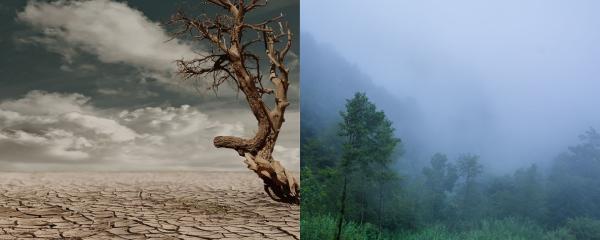
IIT Palakkad study shows how different indices used to predict drought combined with effects fof climate change can lead to different climate predictions for the future

IIT Palakkad study shows how different indices used to predict drought combined with effects fof climate change can lead to different climate predictions for the future
Spirit of inquiry and curiosity are traditions in India, country that has a history of nurturing science, said Hon’ble President Shri Ram Nath Kovind at a seminar organised as a part of the second edition of Nobel Prize Series, India, at the Rashtrapati Bhavan here.
While the country struggles with various problems related to waste management, scientists from the Indian Institute of Technology, Bombay, have come up with a novel solution to turn waste to wealth. The researchers develop a method to generate energy from landfill leachate and microbial fuel cells.
New data gathered by researchers from University of Amsterdam (UvA), over a period of several years from slums across Bengaluru could help in understanding and tackling poverty in India.
Science in India is in interesting times. We have some of the best scientists producing world-class research working in a host of institutions within India that are largely public funded. A large scientific workforce complimented by a promising younger generation – that is often dubbed to be our demographic dividend. A learned and competent scientific administration fighting tooth and nail for increased budgetary allocations to invest in science.
The milk you consume might contain antibiotic resistant strains of bacteria, point out scientists from Department of Veterinary Epidemiology and Preventive Medicine, College of Veterinary and Animal Sciences, Kerala, in their recent study. A drug resistant strain of Stphylococcus aureus had been isolated from udders of cows with virulence factor Panton-Valentine Leukocidin (PVL).
3.6 million lives could be lost in 2050 due to air pollution, says a recent study.
According to a new study by researchers from the Indian Institute of Technology-Bombay (IIT-B), the Health Effects Institute (HEI), and the Institute for Health Metrics and Evaluation (IHME), in 2015, only one in 1000 Indians lived in areas where particulate pollution did not exceed the permissible levels prescribed by World Health Organization (WHO).
Using satellite data from 1973, 1991 and 2016, researchers from the Indian Institute of Science, Bangalore, study how protected area have deteriorated over the years. The study also assesses the reason for the said deterioration of the forests.
Movie buffs and science aficionados are gearing up for the third Science Film Festival of India (SFFI) organized by Vijnana Bharati along with Vidnyan Parishad, Goa. The four day festival will kick off on the 16th of January 2018 in Panaji, Goa, and will feature movie screenings, workshops, exhibitions and competitions showcasing science and technology.
Around 500 all weather roads, listed in the Pradhan Mantri Gram Sadak Yojana’s (PMGSY) monitoring data as being ‘complete’, and has been paid for, have never been built in reality, finds a new study. This study, by researchers from the Princeton University, New Jersey, USA, and the Paris School of Economics, Paris, France, has suggested that political corruption, and not a lack of resources as thought, is the main reason for the lack of roads connecting remote areas in India.
Researchers at the Ashoka Trust for Research in Ecology and the Environment (ATREE) have proposed a new approach towards restoration of the Edeyarhalli-Doddasampige Wildlife Corridor (ED corridor) near Biligiri Rangaswamy Temple Tiger Reserve by working in collaboration with the local communities.